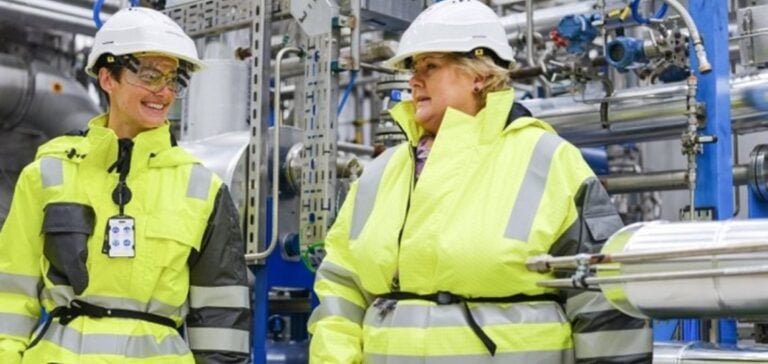On April 18, 2024, Norway, Denmark, the Netherlands, Belgium and Sweden formalized their commitment to carbon capture and storage by signing memorandums of understanding for the cross-border transport of CO2. These agreements are essential for the establishment of a European market for CCS (Carbon Capture and Storage), a crucial technology in the fight against global warming.
CCS technology and its importance
CCS technology involves capturing CO2 emissions at source, such as factory chimneys, and storing them in geological reservoirs after liquefaction. This approach is gradually being adopted in Europe, supported by influential organizations such as theIPCC (Intergovernmental Panel on Climate Change) and the IEA (International Energy Agency), to effectively reduce carbon dioxide emissions.
Norway’s central role
Norway is considered a key site for CCS due to its ancient offshore hydrocarbon deposits, making it a potential carbon graveyard. The “Northern Lights” project led by Equinor, Shell and TotalEnergies plays a major role, with plans to receive CO2 from various industrial facilities and store it beneath the seabed of the North Sea from 2025.
Business implications and economic challenges
Although these protocols offer commercial advantages for CO2 emitting companies, helping them to meet their climate obligations, the high cost of CCS remains a brake compared to alternatives such as the purchase of emission allowances. By the end of 2023, CCS was being practiced by 40 companies worldwide, capturing around 45 million tonnes of CO2 annually, or just 0.1% of global emissions.
To achieve net-zero emissions by 2050, CCS needs to prevent around 1.3 billion tonnes of CO2 being emitted each year by 2030, according to IEA estimates. This represents a thirty-fold increase over current levels.






















